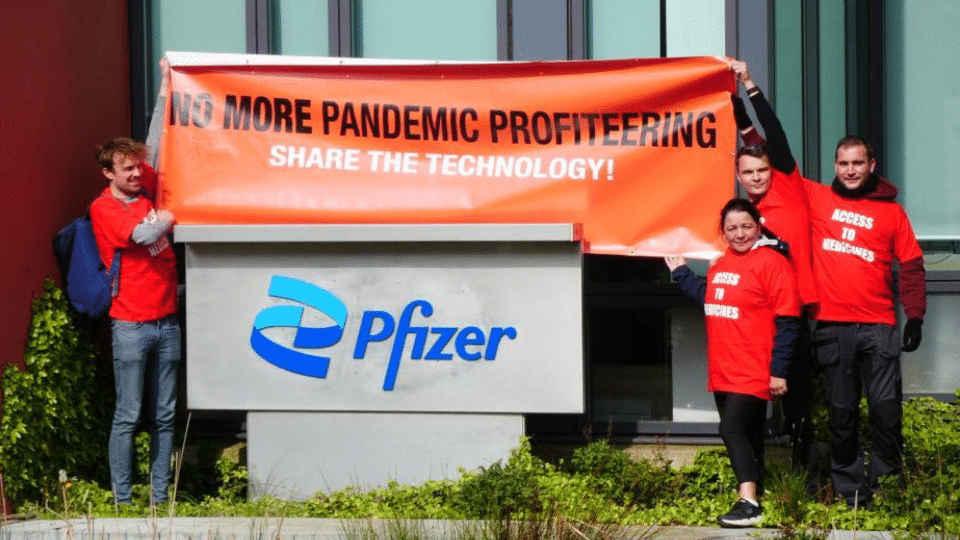What is the upcoming CETA vote in the Dáil all about?
This page is designed to provide information to Irish, other EU and Canadian citizens about the European Commission’s proposal to establish a new, private legal mechanism which they call the Investor Court System, or ICS. Proposals for this new legal system are contained in Chapter Eight of the CETA – an EU-Canada free trade and investment protection agreement – most of which has already been approved by the EU institutions and is legally operational and binding on Member States and the EU since 21st September, 2017.[AW1]
Earlier that year, on 16th May, 2017, the Court of Justice of the European Union (CJEU) ruled that the EU institutions (i.e. the Commission, the Council and the European Parliament) could vote for, approve and legally adopt most of CETA by themselves, but that when it came to the investment protection Chapter Eight, it would legally additionally take the unanimous approval of all 27 EU Member States’ national parliaments for it to become law.
The background to all this is that by voting in favour of the Amsterdam (1997), Nice (2003) and Lisbon (2009) treaties, the Irish people voted in favour of legally removing EU Member States’ national parliaments out of the process of the initiation, negotiation and ratification of EU trade agreements. The CJEU ruled, however, that ‘investment protection’ issues are still under the control of individual member states.

The potential upcoming vote on CETA in the Dáil (the Irish parliament) therefore has nothing to do with the trade in goods and services between the EU and Canada, but rather relates exclusively to whether members of the Irish parliament support the establishment of a new legal tribunal for, only, non-EU companies to sue Member State governments and/or the EU, for financial compensation if and when our laws, regulations and licencing decisions reduce a company’s “legitimate expectation” to future unearned profits. While the phrase, ‘Investor Court System’, or ICS, does not appear anywhere in the 1,598 pages of CETA, that is what the European Commission are proposing to call this new legal system.
The information here on this webpage has been collated by members of Comhlámh’s Trade Justice Group who have campaigned against aspects of this and other free trade and investment protection agreements over many years, arguing in favour of a global fair trade system instead – one with a transparent, democratic initiation and negotiation process aimed at maintaining global heating to a maximum of 1.5 degrees Celsius, which would facilitate implementing the United Nations’ sustainable development goals, respecting workers’ rights and supporting the role of small and medium sized businesses in our economies.
You can also read a fact-checker that the Trade Justice group prepared earlier this year to put to bed some of the misconceptions being shared in public discourse at the time the vote was originally slated for the start of 2021.
Judges Reject ICS
The European Association of Judges and the German Association of Judges say that they see no reason for the ICS as the EU and national judicial systems are “… well established and able to cope with claims of an investor in an effective, independent and fair way”.
The European Association of Judges and the German Association of Judges say that they see no reason for the ICS as the EU and national judicial systems are “… well established and able to cope with claims of an investor in an effective, independent and fair way”. Meanwhile the Irish Seanad was in fact the first European parliamentary body to vote against CETA.
How CETAS ICS would work
The range of documents here show, amongst other matters, how difficult it will be for a government to keep fossil fuels in the ground without having to pay huge compensation, running on average to €500 million plus, the foreign based explorers. The Corporate Europe Observatory listing of 10 reasons not to accept the ISDS elements of CETA still apply.
The range of documents here show, amongst other matters, how difficult it will be for a government to keep fossil fuels in the ground without having to pay huge compensation, running on average to €500 million plus, the foreign based explorers. The Corporate Europe Observatory listing of 10 reasons not to accept the ISDS elements of CETA still apply. Not least of these is the loss of the EU precautionary principle. And despite the Green Party’s assurances that the ISDS system has been reformed one document shows that foreign corporations are guaranteed in the CETA agreement the right to take cases under the old ICSID, under the auspices of the World Bank. Finally, it also deals with the payments to arbitrators.
In this section
Not in Modern Deals
The trend globally in recent years is to not include ICS in trade deals. Four major recent EU trade and investment agreements do NOT have an investor court system (ICS) or an investor-state dispute settlement (ISDS) mechanism.
The trend globally in recent years is to not include ICS in trade deals. Four major recent EU trade and investment agreements do NOT have an investor court system (ICS) or an investor-state dispute settlement (ISDS) mechanism. These four trade and investment agreements force foreign investors to be treated the same as domestic investors by making them use the normal courts of the land, the same as everyone else, if they feel their “legitimate expectation” to the right to make profit has been impinged on by government laws, regulations or licencing decisions. You’ll find further details on each deal in the EU-Britain, EU-China, the United States-Mexico-Canada trade agreements, as well as in the Regional Comprehensive Economic Partnership between the EU and 15 countries.
ECJ Ruling
The ECJ verdict is that ISDS/ICS is not illegal. However, the ECJ says that ISDS/ICS is illegal in Intra-EU trade deals. Other Organisations and reviews say that ISDS/ICS is immoral and that it may not be legal.
European Rules
This section provides an overview of how CETA is viewed by the Green Party in different European countries. The articles are in reference to the European, Canadian and Irish Greens, and only the latter are in favour of the deal. The main argument against CETA highlighted by the Green Party opponents is the detrimental impact on the environment.
There’s Nothing New in CETA Since it was Agreed in 2014
Feb 2021: Nothing has changed in the text of CETA since it was agreed in 2014. European and Canadian Greens know this. Here’s a round up of European, Canadian and Irish Green Party reasons to reject CETA and its ICS.
European Greens
- The European Green Party’s opposes CETA – Read More
- Federation Of Young European Greens: ‘CETA is TTIP Through the Back Door’ – Read More
- 12 Reasons The Green/EFA Group [in European Parliament] Is Opposed To CETA – Read More
The Irish Green Party
- 2016: ‘Government’s Determination to Ratify CETA Deal Without Debate is Worrying – Read More
Canadian Green Party
No Climate Protection
This section contains articles that focus on the environmental protections in CETA and why they are in fact aspirational and not legally enforceable. It also deals with the precautionary principle and how it can’t be actually implemented by the EU member states. Further, it provides links to articles that discuss Canada and its stance on the Keystone XL oil pipeline.
Questionable Economic Growth Assumptions
This section contains papers that review the limitations of trade models used to justify the benefits of CETA; in particular the models make assumptions that do not accurately reflect impacts on wages and employment.
No Labour Protections
This section contains links to the response of organised labour towards CETA including statements from the Irish Congress of Trade Unions (ICTU), European Public Service Union (EPSU) and European Trade Union Confederation (ETUC).
NGO’s say No to ICS
This section contains information on actions by NGO’s, both Irish and international, since 2016 to lobby against CETA particularly its investor state dispute mechanism. Useful background information is included in some of the source material.
- 455 European and Canadian civil society groups call for the rejection of CETA – Read More
- Over 80 Irish civil society groups – Read More
- EU NGO’s Explain How Investor Arbitration Works – Read More
- 280 European civil society organisations reject ISDS – Read More
- EU NGOs – A World Court for Corporations – Read More
Official Documents
Documents and links to documents from the European Commission, Council of the European Union and other official bodies.
- CETA – Full Text – 14 September 2016 – Read PDF
- 2017 EU Commission, Economic Impact of CETA – Read PDF
- The Treaty On The Functioning Of The European Union (TFEU) – Read PDF
- EU Council, Joint Interpretative Instrument on CETA – Read PDF
- ISDS to ICS, by European Parliamentary Research Service – Read More
- CETA CHAPTER EIGHT – INVESTMENT – Read More
- Richard Bruton insists on ISDS – Read More
- UN Trade Commission on ISDS Reform – Read More
Related Posts
Want to Dig Deeper?

Become a member
Join the growing Comhlámh community of like-minded people interested in activism.

Join our groups
Join us as a Member and get involved in one of our groups active on global and social justice issues.
Watch #FIRSTWEDS
Join our First Wednesdays conversations, explore the linkages between local and global justice issues.








